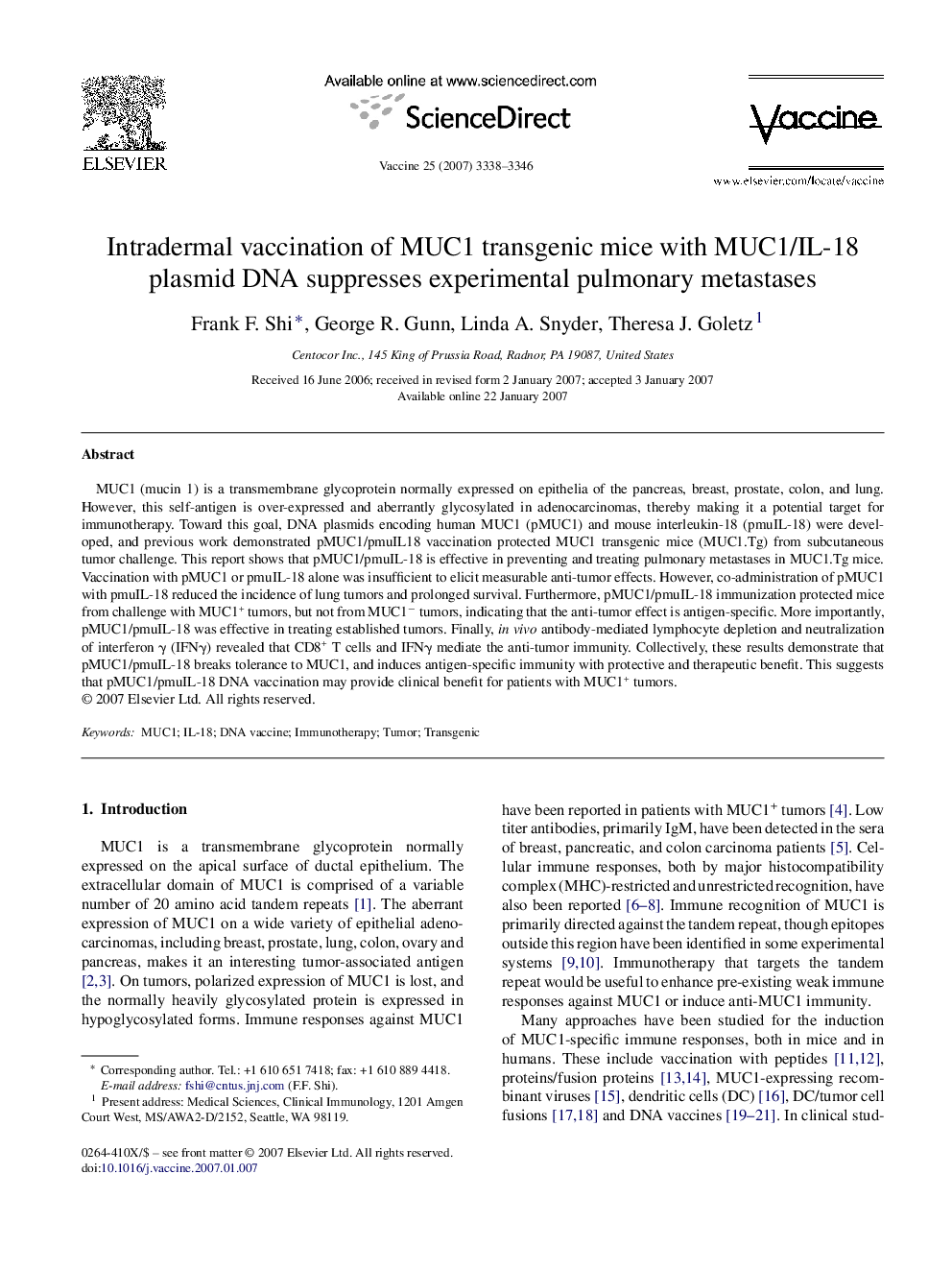| Article ID | Journal | Published Year | Pages | File Type |
|---|---|---|---|---|
| 2409201 | Vaccine | 2007 | 9 Pages |
MUC1 (mucin 1) is a transmembrane glycoprotein normally expressed on epithelia of the pancreas, breast, prostate, colon, and lung. However, this self-antigen is over-expressed and aberrantly glycosylated in adenocarcinomas, thereby making it a potential target for immunotherapy. Toward this goal, DNA plasmids encoding human MUC1 (pMUC1) and mouse interleukin-18 (pmuIL-18) were developed, and previous work demonstrated pMUC1/pmuIL18 vaccination protected MUC1 transgenic mice (MUC1.Tg) from subcutaneous tumor challenge. This report shows that pMUC1/pmuIL-18 is effective in preventing and treating pulmonary metastases in MUC1.Tg mice. Vaccination with pMUC1 or pmuIL-18 alone was insufficient to elicit measurable anti-tumor effects. However, co-administration of pMUC1 with pmuIL-18 reduced the incidence of lung tumors and prolonged survival. Furthermore, pMUC1/pmuIL-18 immunization protected mice from challenge with MUC1+ tumors, but not from MUC1− tumors, indicating that the anti-tumor effect is antigen-specific. More importantly, pMUC1/pmuIL-18 was effective in treating established tumors. Finally, in vivo antibody-mediated lymphocyte depletion and neutralization of interferon γ (IFNγ) revealed that CD8+ T cells and IFNγ mediate the anti-tumor immunity. Collectively, these results demonstrate that pMUC1/pmuIL-18 breaks tolerance to MUC1, and induces antigen-specific immunity with protective and therapeutic benefit. This suggests that pMUC1/pmuIL-18 DNA vaccination may provide clinical benefit for patients with MUC1+ tumors.
